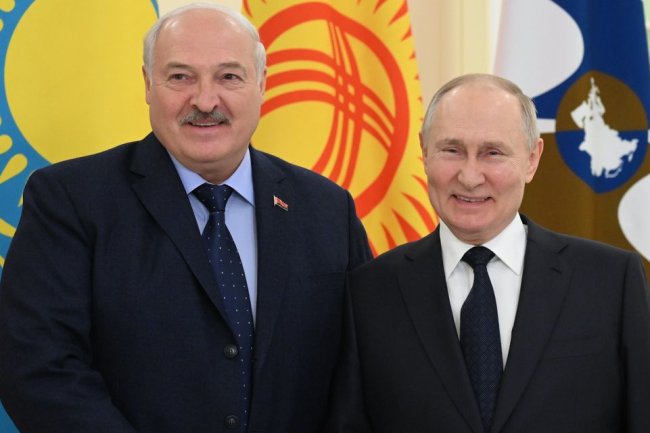The Vatican Can Clean Up Its Financial Act
As with the sex-abuse scandal, church leaders can ask lay Catholics for help. By Tim Busch July 25, 2023 5:17 pm ET Pope Francis at St Peter’s basilica in Vatican City, Jan. 6, 2021. Photo: Galosi/Pool/Spaziani/Zuma Press The Catholic Church faces a global financial crisis. From Vatican City to Washington, revelations of fiscal impropriety give the faithful reason to fear their generosity is being spent in illegitimate, illegal and immoral ways. Church leaders would be wise to adopt the same methods of transparency and accountability that helped them address clerical abuse. One man had long predicted the church’s next crisis would be financial: George Pell. The Australian cardinal, who died in January, had a deep understanding of the church’s fisc after serving as inaugural head of the Vatican’s secretariat for th


Pope Francis at St Peter’s basilica in Vatican City, Jan. 6, 2021.
Photo: Galosi/Pool/Spaziani/Zuma Press
The Catholic Church faces a global financial crisis. From Vatican City to Washington, revelations of fiscal impropriety give the faithful reason to fear their generosity is being spent in illegitimate, illegal and immoral ways. Church leaders would be wise to adopt the same methods of transparency and accountability that helped them address clerical abuse.
One man had long predicted the church’s next crisis would be financial: George Pell. The Australian cardinal, who died in January, had a deep understanding of the church’s fisc after serving as inaugural head of the Vatican’s secretariat for the economy, 2014-19. He sought stronger financial oversight of the many Vatican offices only to face years of baseless personal scrutiny and see his audits canceled.
To glimpse what he was up against, consider the case of Cardinal Angelo Becciu, currently standing trial in Rome. In 2021 Cardinal Becciu was indicted for allegedly embezzling church funds and misusing his office as part of a fraud case in the hundreds of millions of dollars centered on the Vatican’s 2014 investment in a posh London property. In his capacity as the Vatican’s deputy secretary of state, Cardinal Becciu had canceled one of Pell’s external audits.
Cardinal Becciu is reported to have attempted to hide transactions on Vatican balance sheets while elsewhere sending church money to his brother’s charity-related company in his home diocese. The Becciu family describes as “unfounded and maliciously false” any allegation that these funds amounted to a financial favor. Cardinal Becciu has pleaded not guilty, but in September 2020 Pope Francis fired him and revoked his rights as a cardinal—although he retains the title.
The case isn’t unique. Over the past decade, senior Vatican officials became embroiled in scandal over a €50 million loan used to purchase a bankrupt Roman hospital run into the ground by fraudsters and embezzlers. There have been widespread reports of strange accounts in the Vatican bank, including for long-deceased popes, off-books real-estate holdings and massive expenditures for senior officials and clerics who preach poverty but live decadently. When asked for comment, the Holy See directed me to several official reports and interviews about the church’s transparency, financial health and reforms (here, here, here and here).
Yet financial scandals are common in global Catholicism. In the U.S., West Virginia Bishop Michael Bransfield was found in 2019 to have spent more than $792,000 of diocesan money on personal expenses for his luxurious lifestyle. Disgraced former Cardinal Theodore McCarrick of Washington, who stayed in the Vatican’s good graces, was known for his fundraising prowess. In plenty of other countries, Catholic leaders are despised for their blatant financial excess. See Germany’s former “Bishop of Bling,” who spent $43 million renovating his home in the mid-2010s.
Light may eventually shine on more scandals. If so, they will doubtless have been hidden by the church’s lack of transparency. In the wake of the Second Vatican Council, the church allowed parishes to create their own financial councils, which oversee parish administration. Yet these bodies generally aren’t empowered to tackle financial scandal, and impropriety often exists at the higher diocesan level. Something more active and aggressive is needed.
The church’s response to the sexual-abuse crisis shows the way forward. The U.S. Conference of Catholic Bishops in 2002 adopted the Dallas Charter, which created diocesewide review boards composed primarily of lay Catholics. This increased accountability has contributed to a plummeting of sexual-abuse allegations, according to annual church reports. Pope Francis strengthened this system in 2019 when he ordered every diocese worldwide to create a system for the public to submit allegations of abuse, including against bishops, archbishops and cardinals. The U.S. bishops gave lay Catholics a role in its implementation, letting them be appointed to receive reports and tell the public about allegations against bishops.
The church needs a similar system for its finances. Lay Catholics deserve greater authority over policies and investigations—at the diocesan level and higher. The Vatican would benefit from a board of lay Catholics with financial and legal expertise empowered to investigate. The church might also require stronger financial education for priests—perhaps including a mandatory governance and financial-reporting program at the Catholic University of America’s business school. So much scandal exists in part because priests are trained to be shepherds, not financial watchdogs.
Pope Francis seems ready to tackle this challenge. In his 2022 address to the Roman Curia, which consists of the Vatican’s administrators, the famously spartan pontiff called for vigilance against “elegant demons” and “the evil that quietly lurks among us.” He has also begun to rein in the financial authority of some Vatican offices, such as transferring the secretary of state’s vast financial holdings to the treasury. The Holy Father would accomplish even more by creating a comprehensive and collaborative approach, leaning on the expertise and insights of the Church faithful.
Jesus drove the money changers from the temple in Jerusalem. The Catholic Church needs a similar cleansing now.
Mr. Busch is founder of the Napa Institute and chairman of the Board of Visitors of the Busch School of Business at the Catholic University of America.
Journal Editorial Report: The week's best and worst from Kim Strassel, Bill McGurn and Jason Riley. Images: Zuma Press/Invision/AP Composite: Mark Kelly The Wall Street Journal Interactive Edition
What's Your Reaction?




















